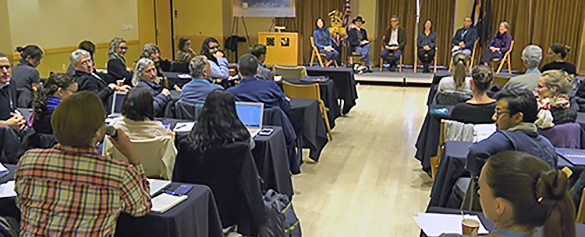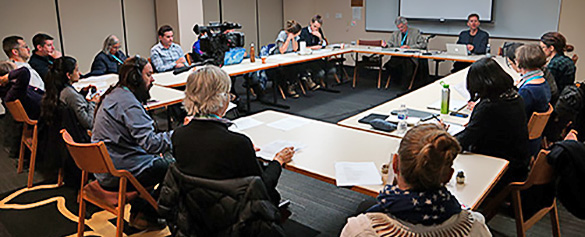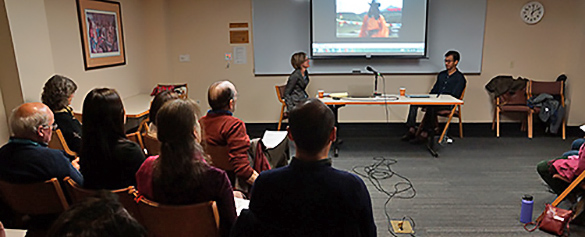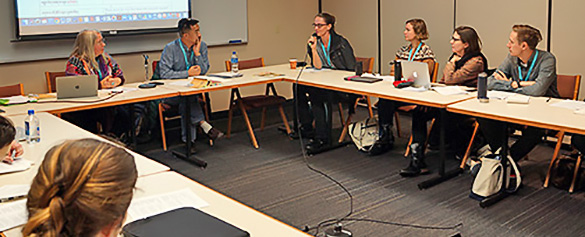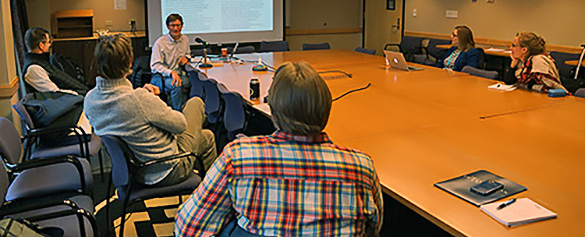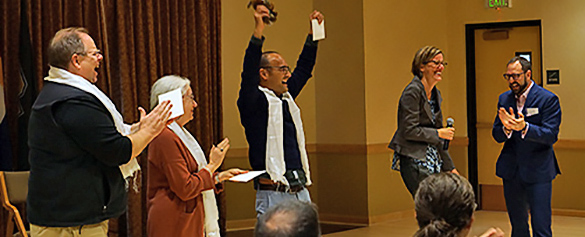Reflections on the Translation Process
Migmar Lama2022-11-16T23:40:44-07:00Jules Levinson (Independent), John Canti (Padmakara, 84000), Dominique Townsend (Bard), Lama Jabb (Oxford), Sarah Harding (Tsadra Foundation), and Nancy Lin (84000) share their reflections about the process of oral and written translation from some of the first instances of Tibetan language being rendered into English in the United States through the first Lotsawa Translation Workshop in 2018. The discussion weaves through topics like facing the fear of “imposter syndrome” as part of the process of translation, the importance of “kindness to the reader”, and how translators relate to the concept of form. The speakers create a gentle, encouraging, and humorous […]

